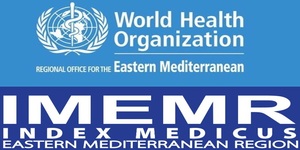Levels of Psychosocial Problems of Children Attending outpatient Clinics of the Paediatric Hospitals in the City of Baghdad
DOI:
https://doi.org/10.36321/kjns.vi20163.2678Keywords:
psychosocial, children, out-patient, pediatricAbstract
Objective: The purpose of the study is to find out the levels of psychosocial problems in a sample of out-patient children attending the pediatric hospitals in Baghdad city at the time of this study.
Methodology: A descriptive study design was achieved in Aug. 21ist through Nov. 10th 2013. A non-probability accidental sample of 138 children with age ranged of six to twelve year and more, who attended with their parent in one of the outpatient departments of pediatric hospitals in Baghdad city, participated in this study. A designed questionnaire was used for the study. This questionnaire is a modified version of Pediatric Symptoms Checklist (PSC) and it consists of two parts; a basic demographic characteristics which includes the information about the child: age, gender, class and number of children in the family; information about the parents such as age, level of education and occupation and secondly, a part forms the inventory. The inventory comprised of 38 items organized into five subcategories. Four choices were for each item. The total score of the inventory was ranged of zero to 114.
Results: One hundred and thirty eight questionnaires were completed. 56.5% of sample is male, 29.7% of the pupils are in fifth class, and 56.5% are of families having 4 to 6 child. Half of the fathers are of four decade old while more than half of the mothers are of three decade old; and 41.3% of parents and 54.3% of mothers have primary school. The severity of psychosocial problems of the participants ranged of mild (38.4%, n: 53); moderate (31.9%, n: 44); and severe (29.7%, n: 41). The study found that the higher severity of the child's psychosocial problems was significantly correlated with older age of their parents.
Conclusions: The present study revealed that more than half of children are male; and also more than half of the families have four children and more; less than half of fathers and more than half of mothers have primary school level of education; half of the fathers are in fourth decade and more than half of mothers are in third decade; the study indicated that more than half of children have level of psychosocial problems ranged between moderate to
KUFA JOURNAL FOR NURSING SCIENCES Vol. 6 No. 3 Sep. through Dec. 2016
050
severe. Finally, the results indicated that the older the parents are the severer levels of psychosocial problems have their children.
Recommendation: The study recommends that the psychosocial health should be considered as target and important aspect for such study as a part of child health service; suggest an educational program for the importance of psychosocial health, in hospitals, out-patients clinics, and non-governmental organizations in order to increase people's level of understanding regarding psychosocial health as well as preventing child's distress; and conduct further studies to provide critical information concerning factors that influence child's psychosocial health, with more concerns about other unstudied factors.
Downloads
Downloads
Published
How to Cite
Issue
Section
License
Copyright (c) 2022 Dr. Maan Hameed Ibrahim Al-Ameri Dr. Aysin Kamal Mohammed Noori Dr. Mahdi Abed Neamah Al-Musawi ***

This work is licensed under a Creative Commons Attribution 4.0 International License.













